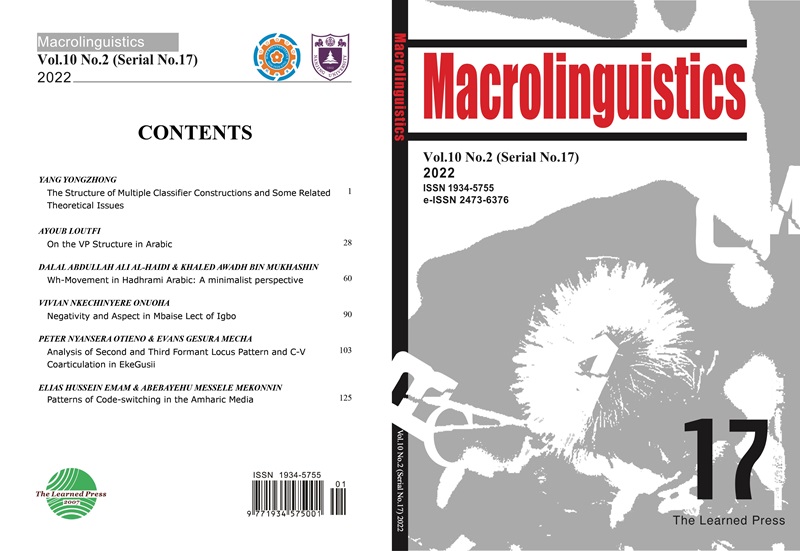汉语中印度借词的中国化:异化到归化
引用次数: 0
摘要
汉语中的印度语外来词在普通话外来词中所占比例最大。这些外来词已成为汉语词汇的重要组成部分,几十年来经历了同化、语义延伸和语音适应。本文对汉语中印度外来词汉化的方式、层次和历史进行了考察。从文献和历史记载中可以看出,这些外来词的汉化基本上是一个从异化到归化的过程。中国本土的学说和哲学,主要是道教和儒家思想,对汉化过程产生了多方面的影响,导致了语义的延伸,语义的变化或原义的完全减少。现代汉语中使用较少、文化敏感度较高的外来词已经完全消失,而汉化程度较高的外来词已经完全世俗化。我们发现,外化外来词被现代汉语吸收的可能性很小,许多外化外来词已被现代汉语词典排除在外。本文章由计算机程序翻译,如有差异,请以英文原文为准。
Sinicization of Indic Loanwords in Chinese Language: Foreignization to domestication
Indic loanwords in Chinese language account for the largest number of loanwords in Mandarin Chinese. These loanwords have become an important integral part of the lexicon of Chinese language and throughout decades have undergone assimilation, semantic extension and phonological adaptation. The present study is an investigation into the modes, levels and history of Sinicization of Indic loanwords in Chinese language. Fundamentally, it is evident from the literature and historical accounts that Sinicization of these loanwords is a process from foreignization to domestication. Native-Chinese doctrines and philosophies, essentially Taoism and Confucianism have had multifaceted influences on the Sinicization process which has resulted in semantic extension, semantic change or total diminution of original meaning. While less used high culture-sensitive loanwords have completely disappeared from modern Chinese, loanwords of higher Sinicization level have completely secularized. It is observed that foreignized loanwords have very less tendency of being absorbed into modern Chinese and many such terms have been excluded in modern Chinese dictionaries.
求助全文
通过发布文献求助,成功后即可免费获取论文全文。
去求助
来源期刊
自引率
0.00%
发文量
83
审稿时长
20 weeks
期刊介绍:
Macrolinguistics (ISSN 1934-5755, e-ISSN 2473-6376) is an international academic journal which is specialized in research papers of non-Indo-European linguistics. It is published biannually by The Learned Press and funded by the Double First-Class Initiative of Nanjing University. It aims at contributing to the complementarity and interaction of linguistic research worldwide.

 求助内容:
求助内容: 应助结果提醒方式:
应助结果提醒方式:


